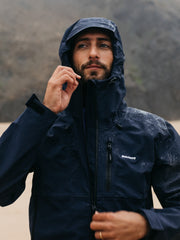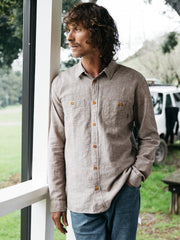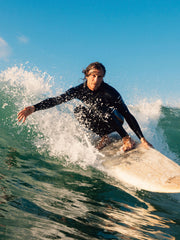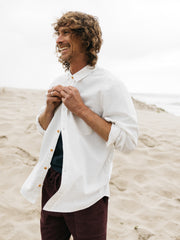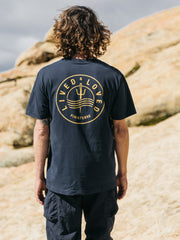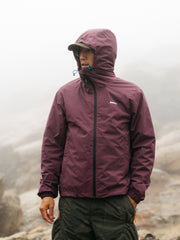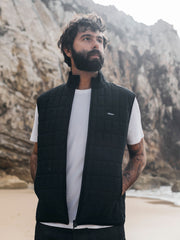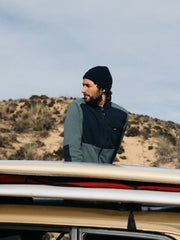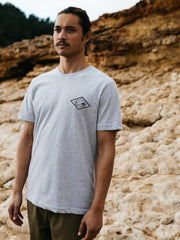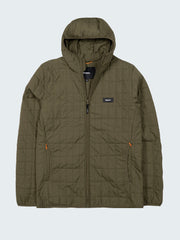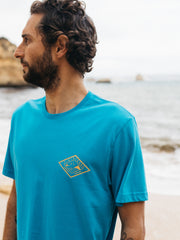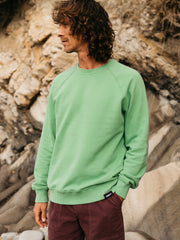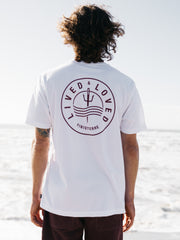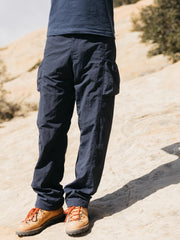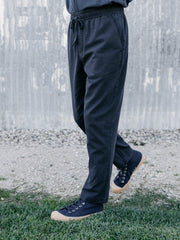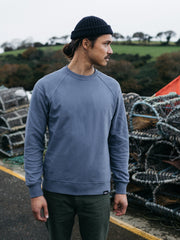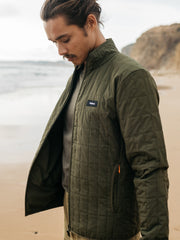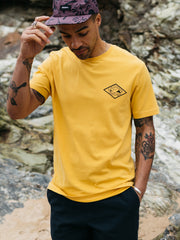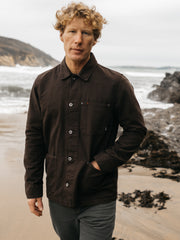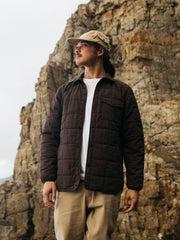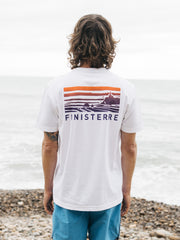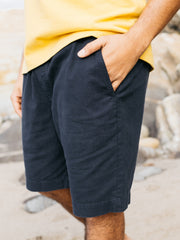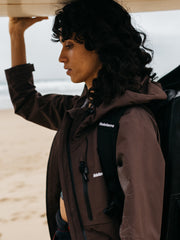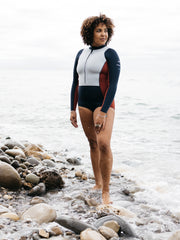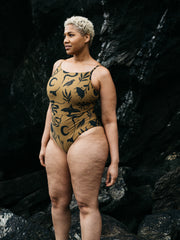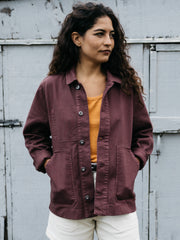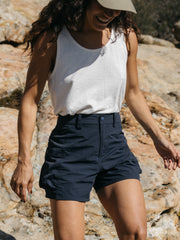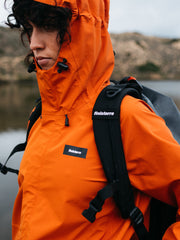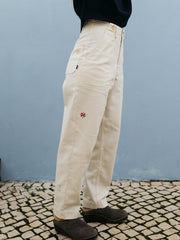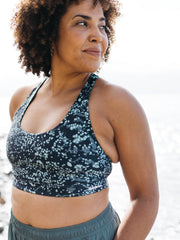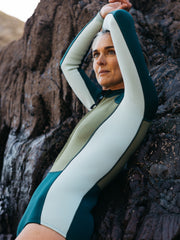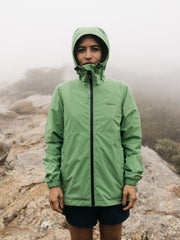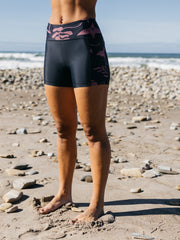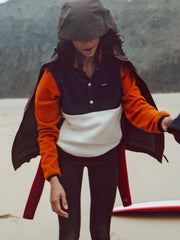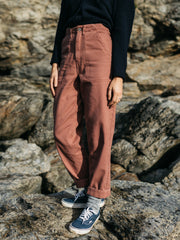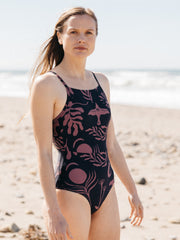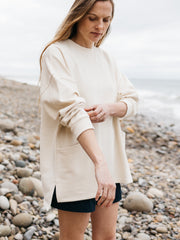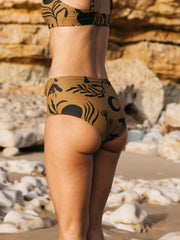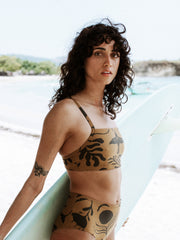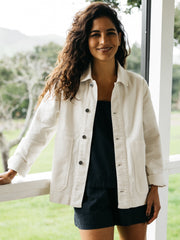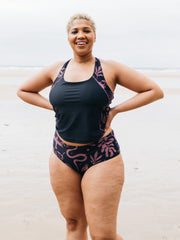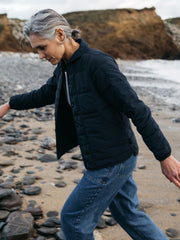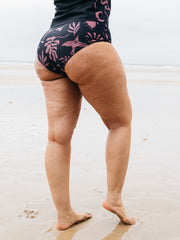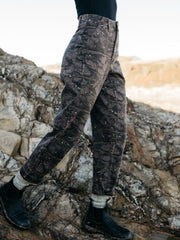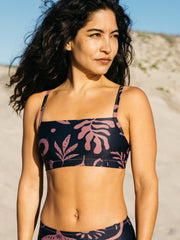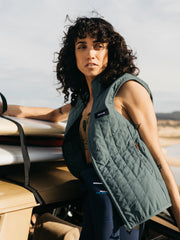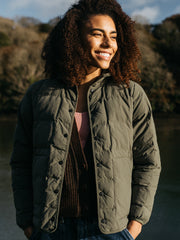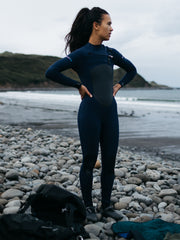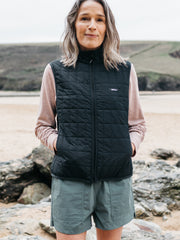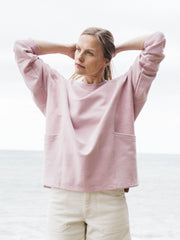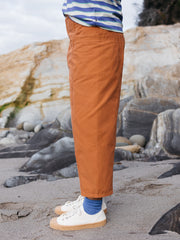A surfer, model and aspiring surf coach, we were introduced to Ming-Hui Brown through mutual friends on our latest trip. From moving to Ventura as a child to working her way into the heart of the local surf community, we sat down to talk about her surf career, upbringing, body positivity and being a local in one of America’s most famous beach towns.
Ming-Hui Brown: Staying Local
14.05.24
5 min read
Ming-Hui Brown interviewed by Zak Rayment
Photography by David Gray & Dylan Gordon
Moving schools as a kid is never easy. But for Ming-Hui Brown, moving from the metropolitan Bay Area around San Francisco to the small beach town of Ventura at the age of 9 presented a unique set of challenges. “I was just figuring out who I was as a kid,” she recalls, “and then my parents were like, ‘we're moving to a completely different place!’ I didn't realise how big an impact it would have but it really made a difference in my upbringing.”
With an American father and a Taiwaneese mother who had immigrated to the US as a teenager, early childhood was spent speaking Mandarin with her grandparents, surrounded by similarly diverse communities. Ventura in the late nineties was a different proposition, she explains. “It was challenging, coming to this small beach town where there was really no diversity or anything. I have a very unique name. I have unique parents. Among the typical Jessicas and Michelles, I stuck out!”
“I felt uncomfortable a lot, and at the time I didn't really understand why. When I think back now, I'm like, ‘oh, it's because I didn't feel like I fit in anywhere! Duh!’” Attending a Chinese school every Saturday, she would learn Mandarin, amongst other things, but the experience of being of mixed heritage left her feeling out of place in both settings, as she remarks, “I was too white for that school, and I was too Asian for my public school.”
Amidst the turbulence of moving and the pre-teen search for identity, surfing would become a light in the dark. “Somehow, I made a friend who surfed, and she got me into it.” Ming explains, “My dad kind of always wanted kids who surfed too, so it all came together. I learned towards the end of the school year and then in the summer there was a contest called the Surf Rodeo, which still happens today. My sister got first and I got second. And I just loved it so, so much.”
It was more than just about finding a friend. Living just a stone’s throw from the beach, afternoons after school were spent bodysurfing and playing in the shorebreak and gradually this became a place of solace to escape the difficulties Ming was facing in the classroom. “Surfing was the thing that totally saved me and made me who I am.” she explains, citing a shortfall in the education system as part of the cause. “In school I was diagnosed with a learning disability, when really, I just wasn't given the right tools. I felt I had no friends, I couldn't do schooling, and then I would go surf... and I was really good at it. It was one of the only times I felt good.”
Perhaps noticing this change, Ming’s Mother made it her mission to encourage her daughters to pursue a wide range of interests and sports. “In contrast to the traditional Asian stereotype of just doing piano, tennis and studies, my Mom was amazing and put us in anything and everything that she could to widen our horizons.” Ming laughs, remembering countless weekends spent travelling around in the family car for surf comps, “I don't know where that came from. Maybe a little influenced by my dad, but it was important for her that we do a bunch of stuff.”
As well as surfing, the sisters were put into a junior lifeguard programme which would further help with their ocean knowledge and safety, as well as providing a route to break into the notoriously tight-knit surf community of Ventura – a community that Ming is now proudly embedded in after years of earning her spot in the proverbial lineup.
“I worked really hard to get my reputation where it is today. It was not easy!” She remarks with a look that tells the tale of years of slow, steady progress. “The surf culture, the surf community, and the real locals here, are not an easy family to break into. I 100% forced my way in and I stuck in there! I've had some pretty hairy situations with grown men... And that wasn't pretty, but I persevered and I'm kind of one of the elders here now.”
She pauses to consider this for a second before continuing, “But I'm also not! That's the great thing about surfing, there's generations. I’m not a grom anymore, but I'm also not like the 70 year old guy who's been surfing here forever, you know? I still look up to them, but now I have kids looking up to me too.”
The communities that grow up around a particular surf location create a delicate ecosystem. One governed by relationships, history, ego and reputation. But it’s also one that Ming firmly believes is necessary to keep people safe, maintain order and protect the beaches. “When shit hits the fan in the water, the locals are the first people to step up and handle it.” She argues, with a fire that shows this is not the first time she’s had this debate. “The locals are making sure everyone is safe, making sure the beaches are taken care of. If there's beach condos that are going to be built down the road, the locals are the ones that are going to the town hall meetings. So they get a bad rap, but they’re the most amazing people.”
“I'm never going to leave Ventura because of it. Because my community is here.”
Now a role model within that community, Ming has started to explore the next steps in her surfing journey as a coach, working with local groms to improve their form, and recently returning from a retreat in Nicaragua with Ombre surf to improve her coaching techniques. “My mindset has changed throughout my 20s to now being in my early 30s,” she explains how with maturity she’s begun to see her place in the surfing community differently. “I feel I went from being very possessive and selfish with surfing, to wanting to share my knowledge and pass it on to the next generation. I've been doing it for a while with the high school kids and the groms that I make friends with in the water, but I want to be able to do it on a bigger scale.”
Having had her own challenges with breaking into the surf industry, a big part of Ming’s motivation is to be an inspiration to younger generations; promoting body positivity and acceptance in an industry which all-too-often gravitates towards a particular body type and aesthetic.
“I've never had anybody being rude to me in the water, as in, rude because of my body or because of my skin colour. Surfing is the most inclusive loving culture” she says, keen to point out that her own personal experiences have, for the most part, been positive. “That being said,” she continues, “it's hard being curvier and looking the way I do in an industry where everyone is teeny tiny and they just don't look the same as me. Being a kid looking for sponsors, it was impossible. I asked brands, I reached out to them, but nobody was interested.”
“I remember being a kid, I won almost every Roxy competition that they put on. They were really fun women's competitions, so I reached out saying, ‘hey, look, this is what I'm doing, this is what I'm about.’ Their response was basically, ‘you're just not the look that we're looking for’” she explains, remembering how it became apparent that the barrier was not, in fact, the quality of her surfing. Despite the rejections, Ming persevered and carved out a professional longboarding career, competing around the world, and building a solid reputation as an active lifestyle model who was also a graceful and powerful surfer.
“A lot of my grace and my power comes from my body,” she muses, saying how friends and family helped her overcome this crisis of confidence. “That’s another journey I have been on through surfing. I don't want to beg to be accepted and not be, just because I look different. My body is really amazing, and I am truly grateful for it.”
Looking forward and analysing the landscape today, Ming is optimistic but with an edge of caution, “I think some brands are doing better. I think they're understanding that their clients aren't just 20-year-old super-cute fit girls. There are other women in the world who shop and surf and buy clothes, and we all look different! Luckily, I've been able to work with brands who do value that, but there's definitely some that are still doing it the same way. So, yeah, I feel like a lot of brands have come far, but there is still some catching up to be done.”


